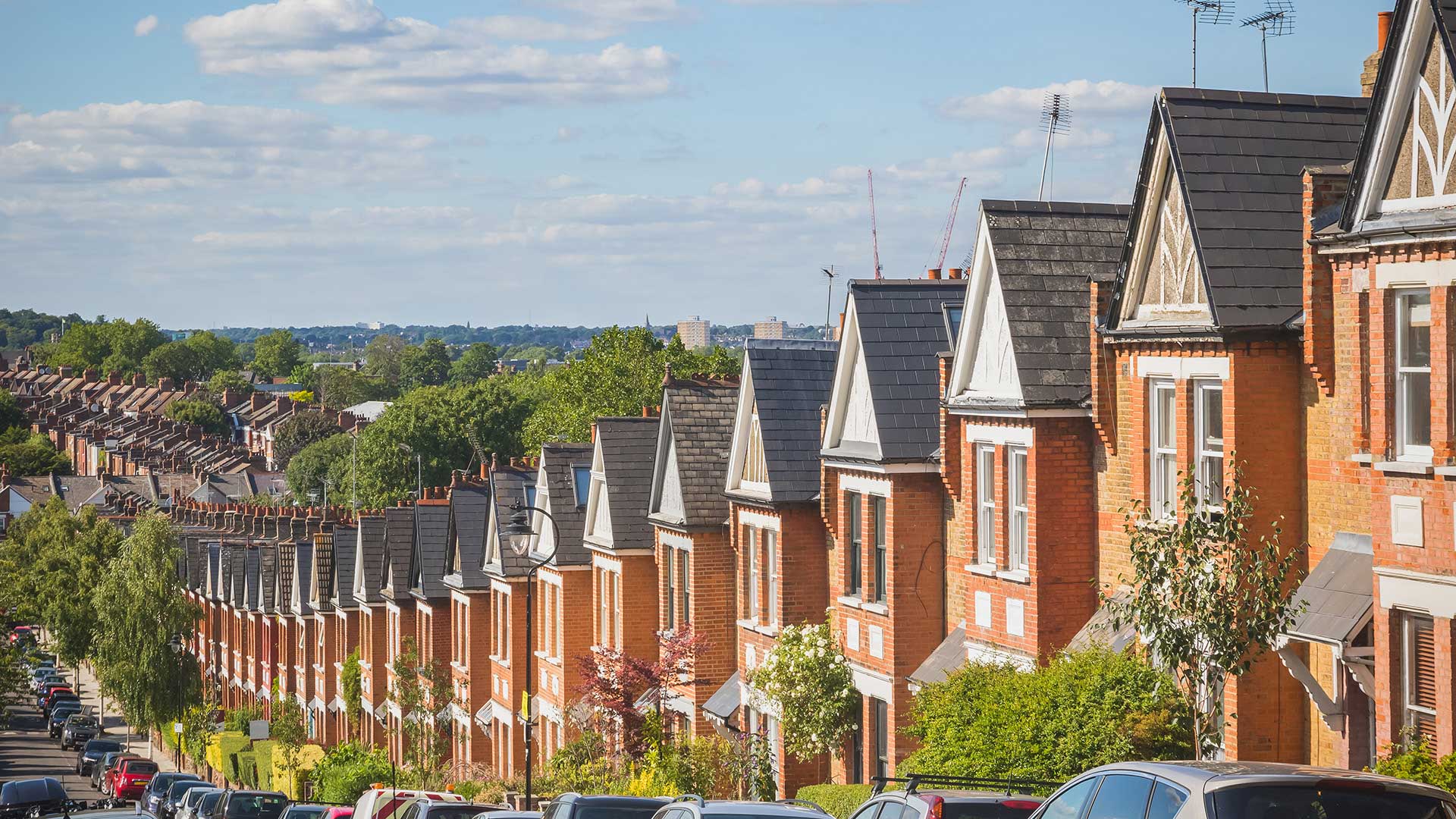Half of Britons are unsure who they would prefer to be the new leader of the Conservative party
The Britain Barometer is our regular polling of public opinion in Britain. We cover a range of topics including political views and voting intentions, the economy, government policies and emerging issues important to the British public.

Half of Britons are unsure who they would prefer to be the new leader of the Conservative party and prime minister.
Britons want the new Conservative party leader to prioritise increasing NHS capacity and growing the economy. In addition, over half of Britons think there should be a general election following the announcement of the new Conservative leader.
Key findings from Kantar Public’s research, which took place between 28 July and 1 August 2022, include:
- Half of Britons (49%) don’t know who they would prefer to be the new leader of the Conservative party and prime minister. 26% of Britons would prefer Rishi Sunak over Liz Truss, while 25% would prefer Liz Truss over Rishi Sunak.
- 45% of those that voted Conservative in 2019 would prefer Liz Truss to Rishi Sunak, while 32% would prefer Rishi Sunak. Nearly a quarter (23%) don’t know who they would prefer.
- Over half of Britons (54%) think that there should be a general election following the announcement of a new Conservative party leader (+7 vs July 2022).
- Britons think the new Conservative party leader should prioritise increasing NHS capacity (51%, +4 vs July), growing the economy (46%, -1) and reducing taxes (39%, nc).
- Britons remain pessimistic about the economy and household finances compared to the start of the year:
- Over two in three Britons (69%) think the British economy is doing worse than it was a year ago (+2 Vs July 2022). This figure remains much higher compared to the recent low in January 20222 when only 39% thought the economy was doing worse than a year ago.
- Six in ten (62%) are finding it harder to meet their monthly household budget than a year ago (+6 Vs July 2022).
More detailed analysis on themes
1. Conservative Party Leadership election
- Half of Britons (49%) don’t know who they would prefer to be the new leader of the Conservative party and prime minister. 26% of Britons would prefer Rishi Sunak over Liz Truss, while 25% would prefer Liz Truss over Rishi Sunak.
- 45% of those that voted Conservative in 2019 would prefer Liz Truss to Rishi Sunak, while 32% would prefer Rishi Sunak. Nearly a quarter (23%) don’t know who they would prefer.
- Among 2019 Labour voters, Rishi Sunak is more popular than Liz Truss (30% compared with 23%), although almost half do not know (47%).
- Britons think the new Conservative party leader should prioritise:
- Increasing NHS capacity (51%, +4 vs July)
- Growing the economy (46%, -1)
- Reducing taxes (39%, nc)
- Only a minority think the new Conservative party leader should prioritise:
- Renegotiating the Northern Ireland protocol (5%, -3)
- Reducing the size of the civil service (6%, -1)
- Over half of Britons (54%) think that there should be a general election following the announcement of a new Conservative party leader (+7 vs July 2022).
- Half (50%) of those that voted Conservative in 2019 do not think that there should be a new general election (-1). Whereas 78% of 2019 Labour voters think there should be a new general election (+10).
- Four in ten (44%) think that Boris Johnson should step down immediately and let someone else take over until a new leader is appointed (-6). 36% think he should continue as prime minister until a new Conservative leader is announced (-1). 20% do not know (+6).
- Two in three (69%) of those that voted Conservative in 2019 think Boris Johnson should continue until a new leader is announced (+4). Whereas 74% of those that voted Labour in 2019 think he should step down immediately (+4).
- When asked whether they thought the Conservative party would be better off under a different leader, one third (34%) of Britons think the party would be neither better nor worse off under a different leader (nc). 27% thought the party would be better off under a different leader (-3), and 24% thought the party would be worse off (+5).
- 43% of 2019 Conservative voters think the party would be worse off (+12), a quarter (27%) think the party would be better off (-6), and 22% think the party would do about the same with a new leader (-6).
2. Household-level economic situation
Britons continue to be pessimistic about the economy and their household finances compared to the start of the year.
- Two in three Britons (69%) think the British economy is doing worse than it was a year ago (+2 Vs July 2022). This figure remains much higher compared to the recent low in January 2022[1] when only 39% thought the economy was doing worse than a year ago. 23% think it is doing much the same (-2) but only 8% think it is doing better (+1).
- 47% think that the British economy will be doing worse than it is now in a years’ time (+2 Vs July 2022). Although this figure peaked in May 2022[2] when 51% thought the British economy would be doing worse in a years’ time, it remains far higher than in January 2022 when 27% thought the economy would be doing worse.
- Six in ten (62%) are finding it harder to meet their monthly household budget than a year ago (+6 Vs July 2022). This figure remains much higher than in January 2022 when it was 44%.
- To help deal with increases to the cost of living, Britons think the government should reduce VAT on energy bills, reduce income tax and introduce a windfall tax on oil and gas companies.
- 60% think the government should remove VAT from energy bills (+5 Vs July 2022)
- 51% think fuel duty should be cut (+6)
- 49% think the government should introduce a windfall tax on oil and gas companies’ profits to fund support for household energy bills (+9)
- 39% think the government should reduce income tax (+3)
- Only 2% of Britons think the government should take no action to deal with the cost of living (nc)
- Almost a quarter (22%) of those in work believe their job is less secure than it was a year ago (-8 Vs July 2022). 15% believe their job is more secure than it was a year ago (+4), although 53% believe their job security is much the same as before (+6).
3. Policy Priorities
When asked about the three most important priorities for the UK government if it is to improve public life in the UK, Britons cite the following:
- Reducing the cost of living (54%, -2 Vs July 2022).
- Investing more in NHS capacity (38%, +1).
- Growing the UK’s economy (26%, -4).
- Tackling climate change (23%, +6)
- Affordable housing (23%, +5)
4. Government Performance
- Half of Britons (51%, +2 from July 2022) think the government has handled the COVID-19 pandemic very/fairly well. 43% (-1) think the government has handled the pandemic very/fairly poorly. Only 6% are not sure (-1)
- Half of Britons (51%, +5 vs July 2022) think the government has handled the situation in Ukraine very/fairly well. 31% (-3) think the government has handled the situations very/fairly poorly. 18% are not sure (-3).
- More than three quarters of Britons (81%, +7 vs July 2022) think the government has handled the cost of living crisis very/fairly poorly. 13% (-6) think the government has handled the crisis very/fairly well. 5% are not sure (-2).
- 55% of Britons (+2 vs July 2022) think the government has handled tackling climate change very/fairly poorly. 29% (+1) think the government have handled it very/fairly well. 16% are not sure (-3).
- 58% of Britons (+3 vs July 2022) think the government has handled Brexit very/fairly poorly. 29% (nc) think the government have handled it very/fairly well. 13% are not sure (-2).
5. Voting Intentions
- Lab 36% (-1 Vs July 2022)
- Con 32% (-1)
- L Dem 13% (nc)
- Green 8% (+1)
- SNP 6% (+2)
- Reform UK 4% (nc)
- UKIP 1% (nc)
- Plaid Cymru <1% (-1)
- Other 1% (+1)
Methodological information
A total of 1,096 interviews were conducted online among adults living in Great Britain between the 28th July and 1st August 2022. All interviews were conducted online using the Kantar Research Express. The Kantar online access panel was the main sample source.
The data was weighted to match population totals for age, gender, 2019 General Election voting patterns, 2016 EU referendum voting patterns, education, region, and likelihood to vote in the next General Election. Any use of this research must cite Kantar Public as the source.
Since our last poll we have changed the approach used to generate the weighting targets for the 2019 General Election. We have included further detail of this change in the method note which can be found alongside the data tables.
This Britain Barometer was issued under Verian's former global brand name: Kantar Public.
Our latest thinking
Subscribe to receive regular updates on our latest thinking and research across the public policy agenda
Our latest thinking
Subscribe to receive regular updates on our latest thinking and research from across the public policy agenda








